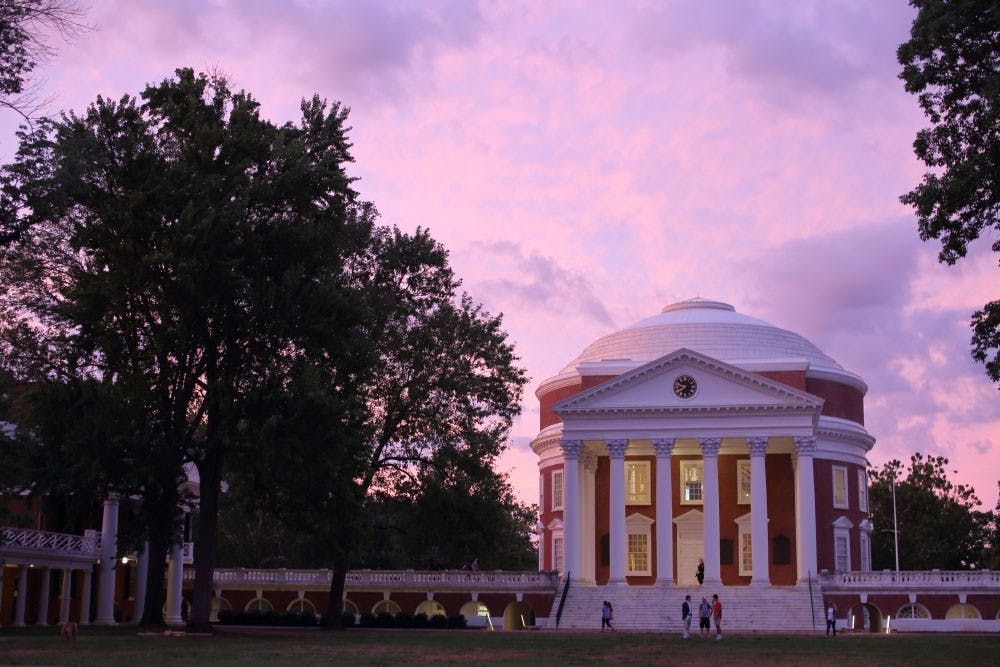Several opinion pieces have been recently published in The Cavalier Daily regarding the decision of the Minority Rights Coalition to deny membership to the Jewish Leadership Council. It seems that each writer takes this rejection to signal devaluation of Jewish opinion rather than rejection of the JLC’s pro-Israel ideology, which is evident by the inclusion of their constituent group Hoos for Israel. I should preface this first part by stating that I am not involved in and do not speak on behalf of the MRC. However, I believe that for the JLC to be considered eligible for membership in the MRC, they must denounce their ties to Zionist groups.
In the MRC’s initial statement, it is said explicitly that the organization denied full membership to the JLC because it includes the CIO Hoos for Israel. In the same statement, the MRC gave two options to the JLC, in order to “create a path to inclusion for Jewish voices.” The JLC rejected both options. I agree that it would be reasonable for the JLC to be frustrated at the infrastructure by which the MRC operates and feel devalued by what seems to be an intensely bureaucratic process. However, I agree with the reasoning behind the MRC’s decision to reject the JLC — the ties between the JLC and the Zionist group Hoos for Israel run counter to the intended purpose of the MRC. Although the MRC has not explicitly stated that it is anti-Zionist, I hope to elucidate the fact that Zionism in practice is a colonialist ideology which oppresses the rights of non-Jewish minorities and therefore has no place in a coalition for minority rights.
Hoos for Israel is a Zionist organization. It exists as a group open to anyone who supports the state of Israel and the Jewish people’s right to a homeland. It is neither “hypocritical” nor “ironic” for the MRC to reject the JLC based on their ties to Zionist groups. Instead, the hypocrisy falls upon the JLC for trying to join the MRC — a group that “recognizes basic human dignity of all persons” — while voicing support for an apartheid state. One cannot both support human rights and the state of Israel at the same time. In the interest of brevity, I will not do much to argue for the claim that Israel is an apartheid state. I will instead direct the reader to several important reports that make it clear that Israeli settlements constitute war crimes, that the state oppresses non-Jews through military law, that Israel denies minority racial groups their rights and creates separate ghettos for racial minorities. Any student group that is remotely committed to protecting minority rights should denounce the state of Israel.
In response to the news many people, including faculty member Edward Strickler, argue that excluding a Jewish organization while including other religious organizations is inherently and definitively anti-Semitic. This brings me to the second half of this article — that anti-Zionism is not anti-Semitism. Some point to the inclusion of other oppressed religious minority groups, namely the Muslim Students Association. On the surface, it might not seem fair to include one religious minority group and exclude another. However, the grounds for the JLC’s exclusion are completely unrelated to their religious beliefs. The JLC includes Zionist organizations, Zionism oppresses minority rights and so the MRC has good reason to deny them membership.
It is typical for Zionists to make the claim that denunciation of Israel is standing against Jewish self-determination and that being against Jewish self-determination is anti-Semitic. There are several ways to respond. One is to point out that the larger Jewish community is widely separated along lines of geography, language, history, class and politics. Further, is hard to believe that a Jewish community could successfully make land claims concerning somewhere like Jerusalem, a city whose significance is deeply rooted in a number of religious creeds and denominations, not just Judaism.
I would like to invite anyone who believes that anti-Zionism is anti-Semitism to read the United Nations Declaration which clarifies the terms of “self-determination” as introduced in the very first article of the first chapter of the U.N. Charter. The first declaration made is that “the subjection of peoples to alien subjugation, domination and exploitation constitutes a denial of fundamental human rights.” By these grounds, the state of Israel not only makes questionable the status of its own self-determination but also deliberately impedes on the self-determination of the Palestinian people. It should be clear at this point that Israel does not broadly define the Jewish people and that Israel is participating in a colonialist enterprise, not the Jewish people. The exclusion of the JLC on terms of political support is not equivalent to exclusion on the basis of religious beliefs — support for Israel is political, as is support for any nation.
The events of Aug. 11 and 12 have made it clear that there exists rampant anti-Semitism both in Charlottesville and at the University. Jewish students share similar negative experiences with other oppressed student groups represented in the MRC. As such, the JLC deserves to have a voice in the coalition as an oppressed minority group. However, this entitlement is contradicted by the JLC’s support of Israel. Therefore, if the JLC wishes to take part in the MRC they should join the long tradition of Jewish activists and intellectuals who are critical of Israel and renounce their ties to Zionist ideology.
Giovanni Senzano is a fourth-year student in the College of Arts and Sciences.
Correction: A previous iteration of this column used the word ‘genocide’ to describe Israel. In light of the fact that the author provided no evidence to support this claim, the word ‘genocide’ and the sentence in which it was contained has been removed.








